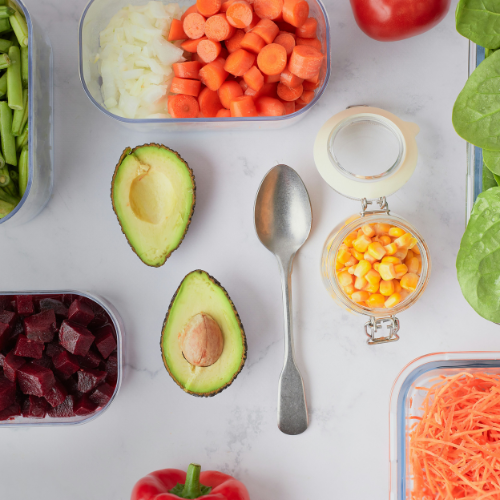Proper nutrition is integral to achieving fitness goals, whether you’re aiming for increased muscle mass, improved endurance, or overall health. Eating the right foods can enhance performance, expedite recovery, and support long-term wellness.
Key Principles of Fitness Nutrition
Balanced Macronutrients
Carbohydrates: Carbs are the primary source of energy for high-intensity workouts. They replenish glycogen stores in muscles and liver, which is essential for sustained performance. Opt for complex carbohydrates such as whole grains, fruits, and vegetables for steady energy release.
Proteins: Protein is crucial for muscle repair and growth. Post-workout, protein helps in the recovery process by providing the amino acids necessary for muscle repair. Include lean proteins like chicken, fish, tofu, beans, and low-fat dairy in your diet.
Fats: Healthy fats support hormone production and provide long-lasting energy. Include sources of unsaturated fats such as avocados, nuts, seeds, and olive oil. Omega-3 fatty acids from fish like salmon also have anti-inflammatory benefits.
Hydration
Staying hydrated is vital for optimal performance and recovery. Water helps regulate body temperature, transport nutrients, and eliminate waste. Drink water throughout the day, and consider electrolyte-rich beverages if you engage in prolonged or intense exercise.
Timing of Meals
Pre-Workout Nutrition: Eating a balanced meal or snack about 1-2 hours before exercise can enhance performance. Focus on a combination of carbohydrates and protein for energy and muscle support.
Post-Workout Nutrition: Consuming a meal or snack within 30-60 minutes after exercising helps replenish glycogen stores and promotes muscle recovery. A mix of carbohydrates and protein is ideal.
Quality of Calories
opt for nutrient-dense foods that provide vitamins, minerals, and antioxidants. These nutrients support overall health and aid in recovery by reducing oxidative stress and inflammation.
Essential Foods for Fitness
Lean Proteins
Chicken Breast: A staple source of lean protein, chicken breast supports muscle growth and repair.
Fish: Fish like salmon and tuna provide high-quality protein and essential omega-3 fatty acids that reduce inflammation and support heart health.
Tofu and Tempeh: Excellent plant-based protein sources for vegetarians and vegans, rich in amino acids and minerals.
Greek Yogurt: Packed with protein and probiotics, it aids digestion and supports muscle repair.
Complex Carbohydrates
Quinoa: A complete protein that also provides complex carbs, fiber, and essential minerals like magnesium and iron.
Oats: Rich in fiber and slow-digesting carbohydrates, oats provide sustained energy and support digestive health.
Sweet Potatoes: A nutrient-dense carb source, sweet potatoes offer vitamins A and C, potassium, and fiber.
Brown Rice: A whole grain that provides complex carbs and essential nutrients, including B vitamins and selenium.
Healthy Fats
Avocados: Rich in monounsaturated fats, avocados support heart health and provide essential nutrients like potassium.
Nuts and Seeds: Almonds, chia seeds, and flaxseeds offer healthy fats, protein, and fiber. They also provide important nutrients like vitamin E and omega-3 fatty acids.
Olive Oil: A source of monounsaturated fats and antioxidants, olive oil supports overall health and can be used for cooking or dressings.
Fruits and Vegetables
Berries: Blueberries, strawberries, and raspberries are high in antioxidants that help reduce muscle inflammation and support recovery.
Leafy Greens: Spinach, kale, and Swiss chard are packed with vitamins, minerals, and antioxidants that support overall health and energy levels.
Bananas: Provide quick energy from natural sugars and potassium, which helps prevent muscle cramps.
Citrus Fruits: Oranges, grapefruits, and lemons are high in vitamin C, which aids in immune function and recovery.
Hydration and Electrolytes
Coconut Water: A natural source of electrolytes, including potassium and sodium, coconut water helps replenish lost fluids and maintain hydration.
Watermelon: High in water content and essential vitamins, watermelon also provides potassium and helps with hydration.
Electrolyte Drinks: Choose low-sugar options that provide essential electrolytes like sodium, potassium, and magnesium, especially after intense exercise.
Practical Tips for Incorporating Fitness Foods
Meal Prep and Planning
Plan and prepare your meals ahead of time to ensure you have access to healthy, balanced options. Batch-cook proteins, grains, and vegetables, and store them in the refrigerator or freezer for easy access.
Smart Snacking
Opt for nutrient-dense snacks that combine protein and carbohydrates, such as Greek yogurt with berries, a handful of nuts and fruit, or whole-grain crackers with hummus.
Hydration Strategy
Carry a reusable water bottle and aim to drink water consistently throughout the day. If engaging in prolonged exercise, consider drinking an electrolyte beverage to replenish lost fluids.
Mindful Eating
Listen to your body’s hunger and fullness cues. Eating mindfully helps you better understand your nutritional needs and prevents overeating or underfueling.
Adjust for Goals
Tailor your diet based on specific fitness goals. For muscle gain, focus on higher protein intake; for endurance, emphasize complex carbs and hydration; and for weight loss, balance your caloric intake with physical activity.
Food plays a crucial role in optimizing fitness, performance, and recovery. By understanding and incorporating essential nutritional principles and foods into your diet, you can enhance your workouts and support overall health. From balanced macronutrients and hydration to nutrient-dense choices and practical tips, a well-rounded approach to fitness nutrition can help you achieve your goals and maintain a healthy, active lifestyle.


